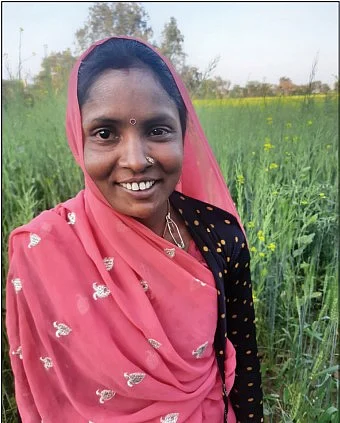Tough and ambitious, these women know what they want
Nibi village in Bundelkhand with 400 households and 1500 hectares of agricultural land has skewed ownership of land. Four women have carved a future for themselves when it looked like a dead-end

Several women from Nibi, a nondescript village in the rugged Banda district in Bundelkhand, were working in a garment factory in Vapi (Gujarat) before the lockdown. Like others, they were forced to return home. Phula Devi decided they would not return. “There was this fear that if anything went wrong again, it will push us again to the brink of starvation,” she explains.
They were all landless and had moved out in desperation. But once the factory shut down, she recalls, the owner refused to help or even pay Rs 8,000 by way of salary which was due. They dipped into their savings to survive but when Gujarat Government announced relief, they were treated as outsiders and kept out of the list of beneficiaries.
In June, with no more savings left, they decided to walk back over 1300 km from Vapi to Banda. The group of 19 with five children walked from Vapi to Nashik, a distance of 140 kilometres. It took them almost two days. From there they took a train to Jhansi.
“It was a second birth for us. We fought hunger and exhaustion to reach our village. When people started talking about going back, old images started flashing in my mind and I decided not to leave the village again,” she recalls. Her friend Kusuma also agreed with her.
Little construction work was going on in the village and adjoining areas. Work under Mahatma Gandhi National Rural Employment Guarantee Act (MGNREGA) was difficult to come by. Villagers complained that the Pradhan of the Gram Sabha, who is from an upper caste, ignored them because they were Dalits. The upper caste men owned most of the land.
Nibi village with 400 households and 1500 hectares of agricultural land had skewed ownership of land. 60 households owned 900 hectares of agricultural land. They were all from upper castes. Some 140 households from the OBC community owned 600 hectares while the remaining Dalit households owned no land.
The biggest landowner in the village was Jai Kumar Chaturvedi, who owned 100 hectares of land. He would let the land out for sharecropping, known in local parlance as ‘Batohi’.
Phula admits receiving free ration from the state government and once even a thousand rupees in cash. The support emboldened her to take the risk, she says. When the Chaturvedis were approached by the women, they were shocked because normally such negotiations would be conducted by men. But after the initial shock they decided to give the women a parcel of land.
Word soon spread and several other women joined her. Phula went around the village advising women of migrant families to stay back. “We had seen the worst in Vapi and decided to try our luck. What did we have to lose?” chips in Murri Devi. The news from Vapi that Ram Dayal, a villager from Nibi, had died in Vapi and the contractor forced his widow and son to work in the factory to repay a loan, cemented the resolve.
“I am illiterate. I do not know anything about farming. Initially, I was a labourer and then when I shifted to Vapi my work was to sift soiled cloth pieces from fresh ones. So, my knowledge about farming was zero,” Phula recalls. But a relative came to her rescue. He provided all the basic information like which seeds and fertilizer to use and when. Luckily, the rains were normal and there was no looking back.

Kusuma had a good harvest of cabbages, potato, cauliflower and other seasonal vegetables. She opened a small makeshift shop inside her house and began to sell them. “I earned anything between Rs 125-150 per day. Some days, I even earned close to Rs 250,” Kusuma says with a satisfied smile. She and her husband repaired an unused well to overcome the shortage of water. Now women in larger numbers are taking to farming.
The women came together do jointly finance the farming. Four friends - Phula, Bimla, Koili and Murri – have entered into a contract to share agricultural inputs and profit. They chipped in with Rs 3,000 each and used the amount for irrigation, seeds and fertilizers. “We will give half the crop to the landowner and share the rest,” confides Bimla.
Thekedars (contractors) who visited the village to lure them with job offers were turned away. The women of Nibi have become talking points in the region. Twenty kilometres from Nibi, villagers said, “We have heard of the women who have opted for farming rather than return to factories. Around this time every year, there would be padlocks on huts and all would be quiet, acknowledges Vinod Singh. No more. In Nibi and adjoining villages one can hear chatter, cries and laughter.
“Thanks to the women, life has returned to the villages,” Raja Bhaiya of Vidya Dham Samiti, nods in confirmation.
Follow us on: Facebook, Twitter, Google News, Instagram
Join our official telegram channel (@nationalherald) and stay updated with the latest headlines